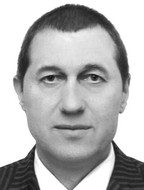Donetsk National University students' attitude to healthy lifestyles rated by questionnaire survey
Фотографии:
ˑ:
PhD, Professor S.I. Belykh
Donetsk National University, Donetsk
The physical fitness and functionality rates of the Ukrainian university students are reported to be on the constant fall. A theoretical analysis under the study demonstrated that the present academic physical education improvement strategies may be basically classified into the traditional and new ones. It should be emphasized that the traditional strategy is largely deficient due to being at least reluctant to the academic education humanization idea on the whole and its implications for the academic physical education system in particular. Therefore, we believe that the traditional strategy need to be replaced by the new strategy giving a top priority to a transition from the educator-student (subject-object) relationship (with authoritarian process management by the educator) to the equal interpersonal (subject-subject) relationship management style, with the faculty attention being switched over from the corporeality-centred teaching formats to the personality-building ones. For the purposes of the new strategy implementation, we performed a questionnaire survey to rate the Donetsk National University students’ attitudes to healthy lifestyles, their physical fitness and culture.
Subject to the study were the first- and fourth-year male (n=324) and female (n=326) students. The survey data showed the significant shares of the sample (45.68% and 37.42% of the males and females, respectively) being unsatisfied with the scope of the theoretical and practical knowledge and skills provided by the university in the health improvement and physical development domain i.e. under the academic Physical Education curriculum, with the total dissatisfaction rated at 41.54% of the whole sample (n=650). Therefore, the valid academic physical education curricula need to be revised to expand the scope of the theoretical knowledge related to healthy lifestyle (HLS) and physical culture.
Keywords: academic physical education improvement strategy, healthy lifestyle, physical culture, categorical questionnaire survey.
References
- Belykh S.I. Aksiologicheskie osnovaniya postroeniya lichnostno orientirovannogo protsessa fizicheskogo vospitaniya studentov [Axiological grounds for individualized academic physical education process]. Teoriya i praktika fiz. kultury, 2017, no. 11, pp. 42–45.
- Zinoviev N.A., Bavykin E.A. Zdorove v sisteme tsennostnykh orientatsiy studentov v kontekste sportivnoy deyatelnosti [Health value in students' system of values in the context of sporting activity]. Teoriya i praktika fiz. kultury, 2017, no. 5, pp. 19–22.
- Kokoulina O.P., Kopylova N.E., Efremova N.G., Zaytsev V.A. Povyshenie zainteresovannosti studentov v zanyatiyakh fizicheskoy kulturoy [Actions to increase students' motivations for physical education]. Teoriya i praktika fiz. kultury, 2017, no. 9, pp. 22–25.
- Lubysheva L.I. Sport i sotsializatsiya: ot metodologii sportizatsii – k innovatsionnym sotsiokulturnym proektam [Sport and socialization: from sport-centered methods to innovative socio-cultural projects]. Fizicheskaya kultura: vospitanie, obrazovanie, trenirovka, 2017, no. 1, pp. 2–4.



